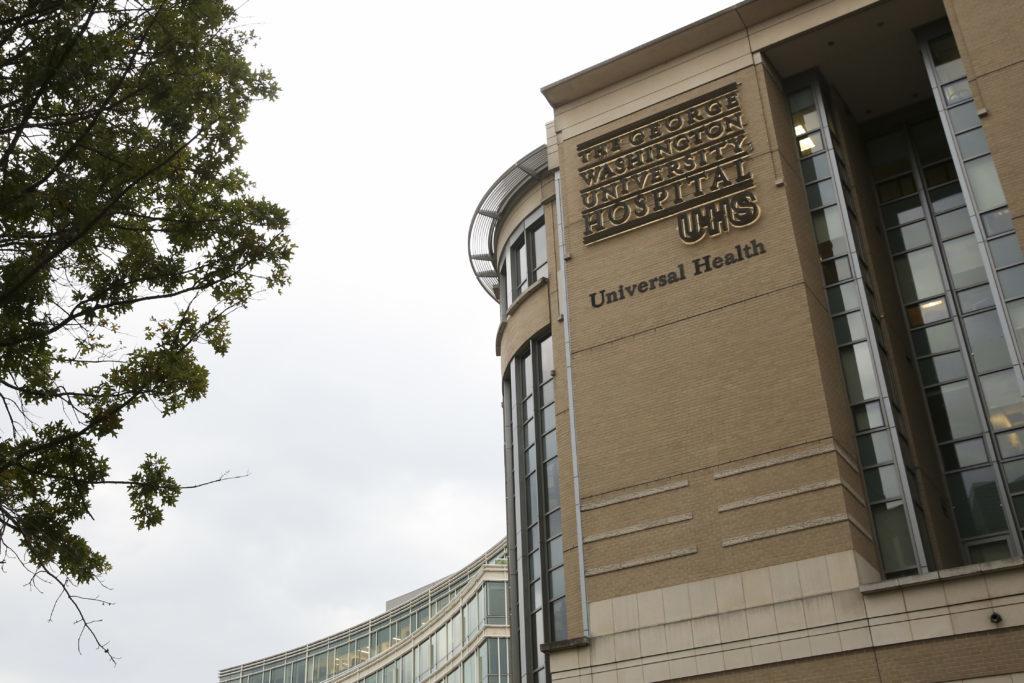A man is suing GW Hospital for alleged wrongful termination after he yelled at a manager because he was denied a day off to observe a religious holiday.
Ibin Qadir-Jackson, a former attendant who worked at the hospital from June 2013 to July 2016, alleges in a one-page complaint filed in the D.C. Superior Court Monday that he was wrongfully terminated after “raising my voice” to protest a shift scheduled on one of two official Muslim holidays. Qadir-Jackson, representing himself, is asking for $70,000 to compensate for lost wages during the 16 months he was unemployed after his termination.
“Other non-Muslim, non-male, non-African American individuals have been treated better than me and were not terminated for ‘raising their voice,’” he said in a discrimination charge to the U.S. Equal Employment Opportunity Commission and Virginia Human Rights Commision.
Qadir-Jackson states in the charge, which was dismissed by the EEOC but attached to the lawsuit, that he was discriminated against on the basis of race, sex, religion and retaliation. He did not return a request for comment.
Qadir-Jackson alleges that he was scheduled to work on July 6, 2016, but later asked for the day off because friends at his mosque wanted him to attend a full-day celebration of Eid-el Fatir – the last day of Ramadan, the Muslim holy month.
A hospital manager declined his request and asked him to report to the medical surgery department. When Jackson arrived for his shift at 7 p.m., the supervisor told him he had been transferred to watch over patients – as a “sitter” – in the emergency room, the EEOC charge states.
Qadir-Jackson said it felt “demeaning” that the hospital refused his request off because his services were needed, only to be told he had to “sit and observe patients.”
“I felt like this was further punishment and retaliation for my religious beliefs,” he said in the charge.
Qadir-Jackson claims he then raised his voice at a staffing specialist in the emergency room, saying that he needed the day off because “today was the day for me to be celebrating Allah” and it was special to him.
“I work really hard, and not be getting the day off and for what?” Qadir-Jackson alleges he asked the specialist. “For this? Anybody can be sitting at the emergency department.”
Qadir-Jackson said in the charge that he typically worked 64 to 80 hours a week at the hospital and received positive performance evaluations.
The specialist told him to calm down and come to her office, where she sent him home because of his “state of mind,” the charge states.
Qadir-Jackson claims the outburst was the first time he had complained about his shift, and he said he apologized to his co-workers for raising his voice. The specialist allegedly took his badge and told him it would be returned after hospital management “figures things out,” according to the EEOC document.
Though Qadir-Jackson was originally scheduled to work July 7 through 10, he later saw on an electronic scheduling portal that he had been suspended. Qadir-Jackson received a call from his manager July 8 alerting him that the hospital was conducting an investigation into his actions and would notify him of the result, the document states.
Qadir-Jackson was also scheduled to work the next week, but he states in the document that he was unable to log in to the portal when he tried to look at his hours on July 10.
The hospital’s human resources manager called Qadir-Jackson the next day to schedule a meeting with him and the department manager to discuss the incident. Qadir-Jackson said the two managers told him that his behavior was “unprofessional and disruptive” and that, because the outburst was the third time he had been written up, he would be fired, the charge states.
Qadir-Jackson alleges that the two prior incidents for which he was written up occurred in 2014 and May 2016. During the first incident, he claims he failed to file a timely inpatient report when a patient sat on the floor in his absence.
During the May incident, Qadir-Jackson alleges that he was written up for leaving a patient alone in a room while he withdrew $20 from an ATM for his co-worker, though he said that the co-worker watched the patient while he was absent.
In an April 18 response to Qadir-Jackson’s discrimination charge, the EEOC determined that they were unable to find evidence of discrimination, according to court documents.
A GW Hospital spokeswoman did not return a request to comment. An initial scheduling conference is set for Oct. 19.





